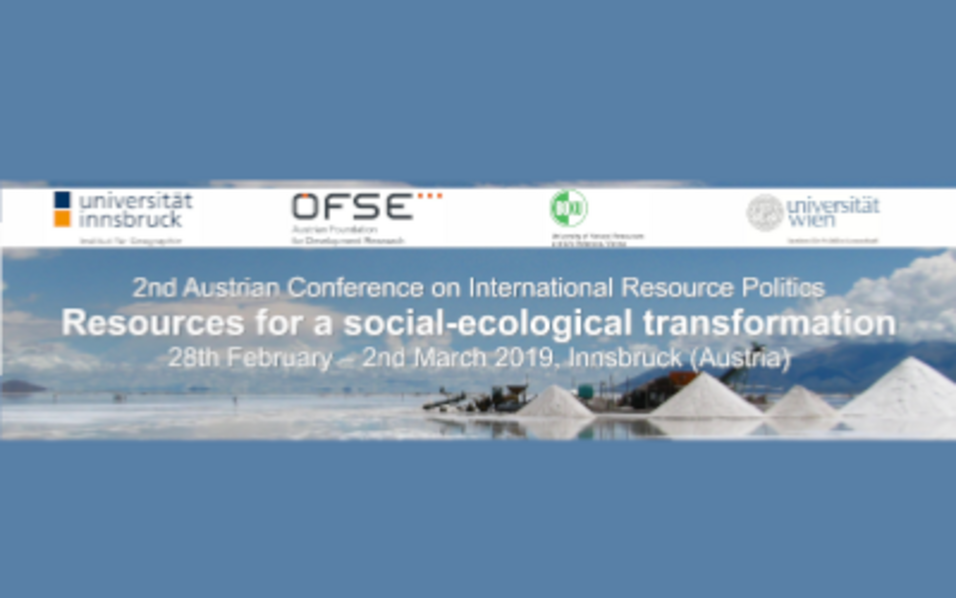World society is facing a comprehensive social-ecological crisis related to fast political, economic, technological and social changes. The current economic model and its forms of excessive resource extraction and use exacerbate ecological problems and conflicts, generates political instability and increases social inequalities. There is emerging agreement in science, politics and society that a fundamental transformation is needed. Some stakeholders frame the adoption of the UN Sustainable Development Goals (SDGs) as an important step towards recognising and addressing the most pressing transformation needs. However, many scholars argue that such a transformation requires a more radical change of current modes of production and living as well as development pathways instead of mere technological and managerial solutions.
In this context, the extraction, distribution, use and disposal of natural resources are of crucial importance. We acknowledge resources as a biophysical materiality and, at the same time, as a social, ecological and in the end as a political ‘construct’, and part of the powerfully-structured social relations. Such a perspective intends to overcome the dichotomy between society and nature in a wider concept of ‘societal nature relations’. A better comprehension of the multidimensional character of resources as well as a multiscale perspective is needed to achieve a better understanding of the complex nexus between resources and transformation potentials.
Following the first conference (“Towards International Resource Fairness - Theories, Conflicts and Policies” in 2014, see also programme, documentation and conference publication), the 2nd Austrian Conference on International Resource Politics focuses on the role of natural resources for a social-ecological transformation. Highlighting a North-South-perspective, the conference aims to analyse past, present and future challenges for transformation pathways that take global inequalities, geopolitics but also transnational resistance and forms of cooperation into account. The goal of the conference is to bring together researchers, practitioners and activists from different regions and disciplines to advance inter- and transdisciplinary research.
Informationen zum: Call for Papers

